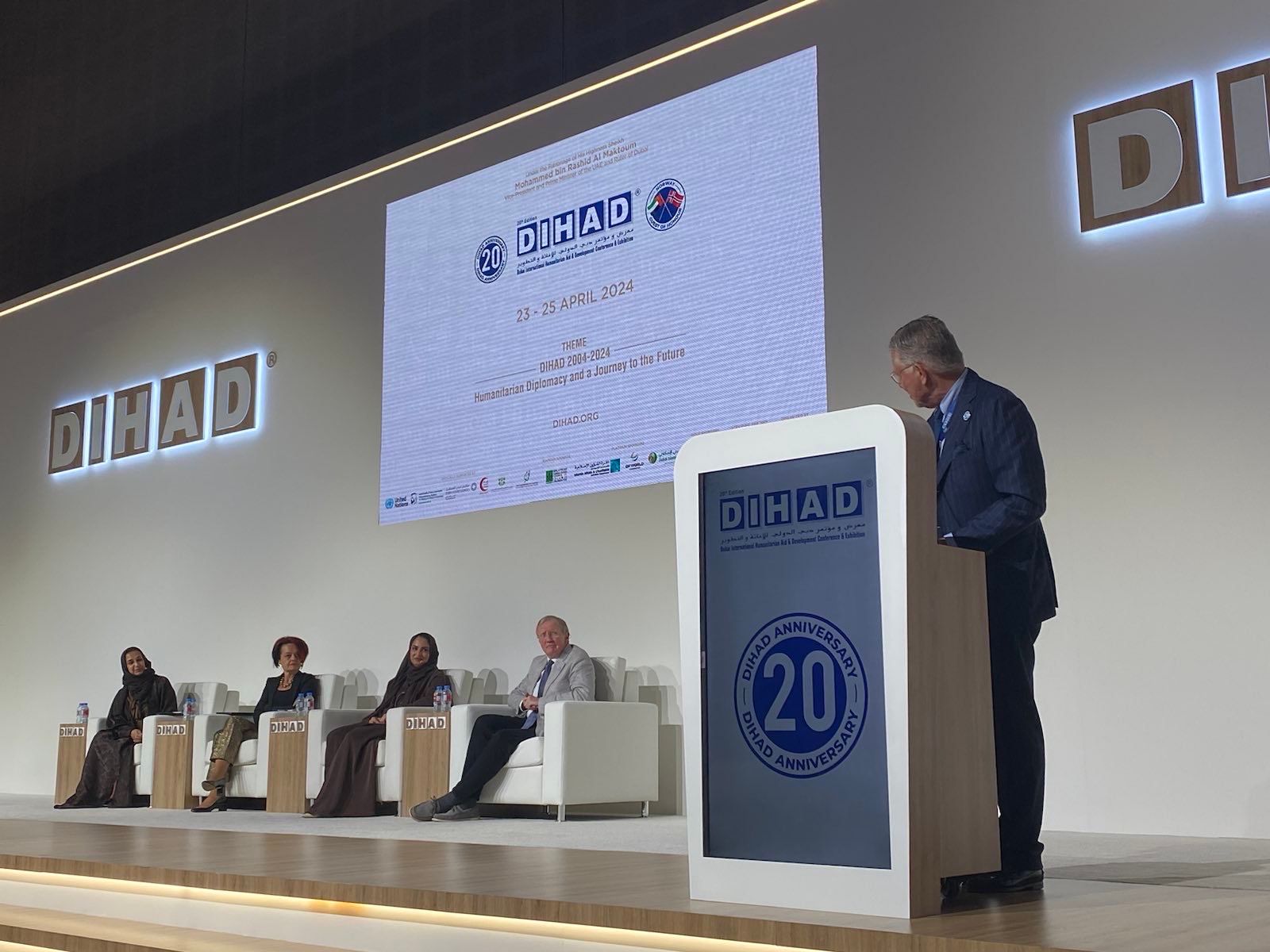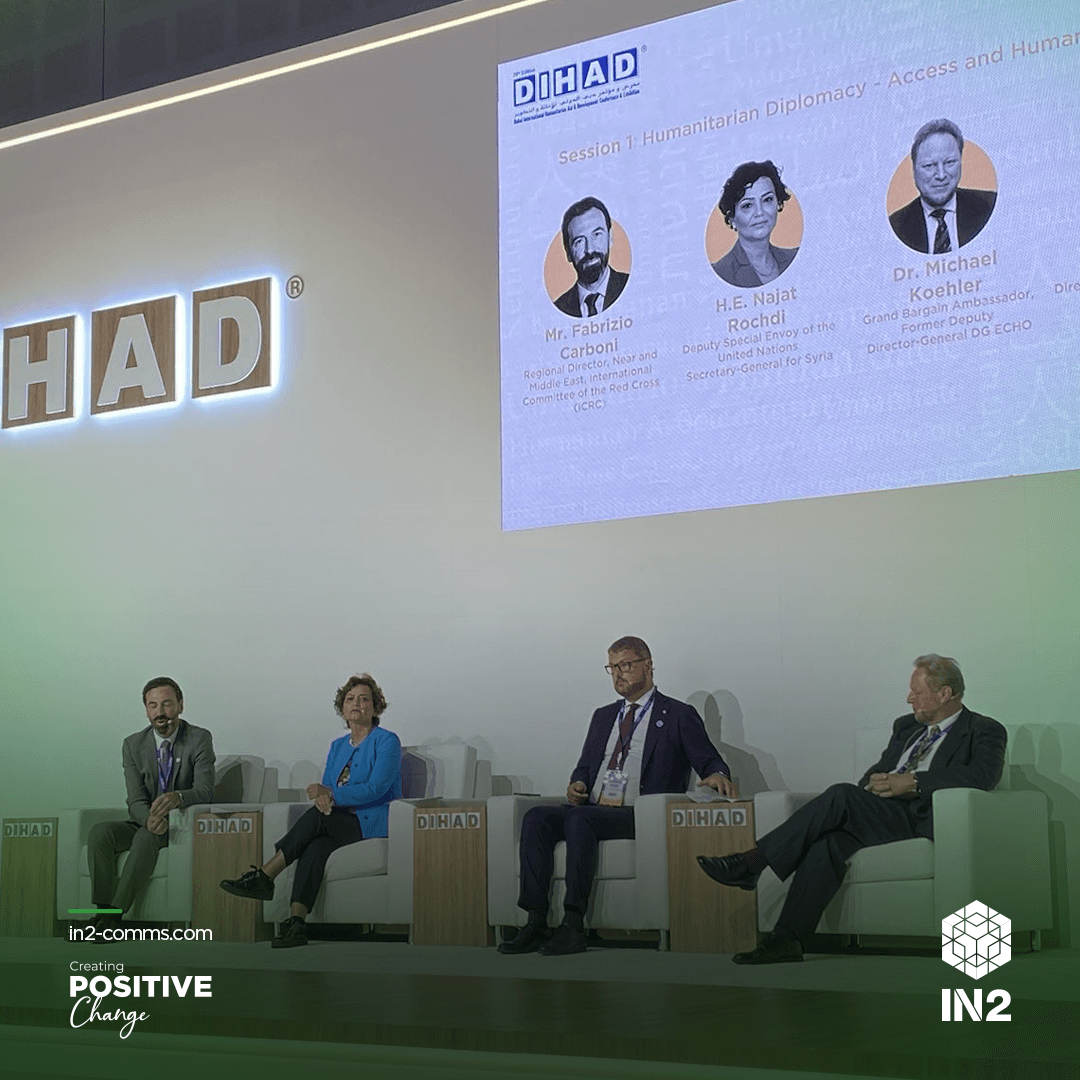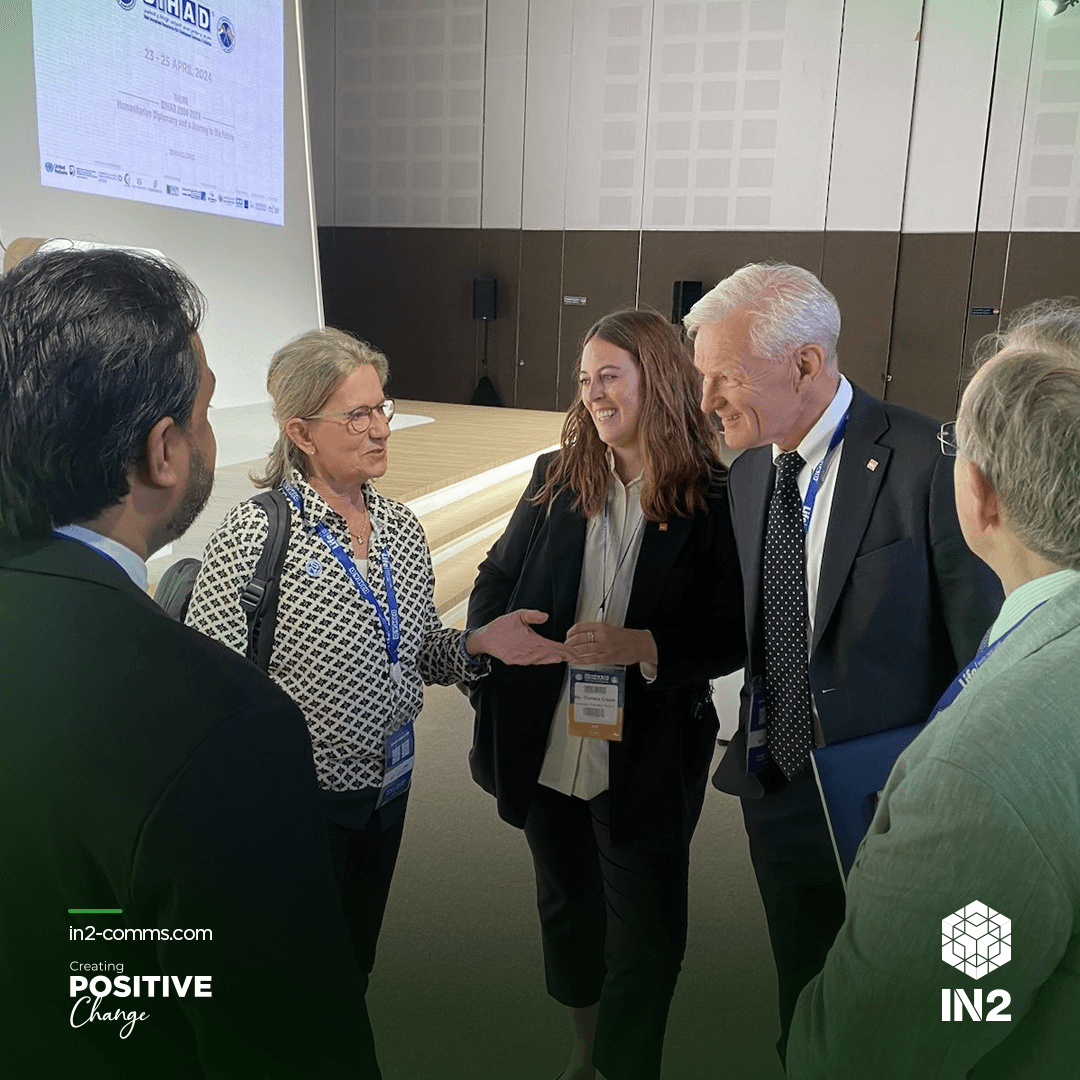
DIHAD 2024 Day 1: Key Insights, and Opportunities in Humanitarian Work
DIHAD 2024 Day 1: Key Insights, and Opportunities in Humanitarian Work
The opening day of DIHAD 2024 offered an impactful look at the urgent challenges facing global humanitarian efforts. With discussions centred around critical issues such as climate change, disinformation, and a growing funding gap, the event highlighted the increasing complexity of delivering aid to those in need.
The IN2 team was deeply engaged in these conversations, gaining valuable insights from a series of panel discussions led by prominent figures, including Regional Director for the Near and Middle East of the International Committee of the Red Cross (ICRC) Fabrizio Carboni, and Dr. Nawal Al-Hosany, UAE Permanent Representative to the International Renewable Energy Agency (IRENA).

Major Takeaways:
1. Collaboration Across Sectors is Essential Humanitarian efforts, diplomacy, and climate action must work hand-in-hand to tackle both immediate and long-term crises. The interdependence of these fields is crucial in addressing today’s complex global challenges.
2. Peace is a Prerequisite for Effective Climate Action Peace is a foundational requirement for achieving successful climate initiatives. At the same time, climate change has the potential to drive conflict, creating a vicious cycle that must be addressed.
3. Increasing Barriers to Humanitarian Access. Political and military actors are increasingly deprioritizing humanitarian access, making it difficult for aid organisations to reach vulnerable populations. This growing trend presents a significant obstacle to effective humanitarian work.
4. Combating Disinformation Misinformation is a major problem that polarises communities and undermines trust in humanitarian organisations. The role of the media and education systems in actively combating disinformation is more critical than ever to safeguard the integrity of aid efforts.
5. Impartiality is Critical. The perception of neutrality is vital for humanitarian organisations to operate effectively. Trust and credibility are built on the belief that these organisations serve all people, regardless of politics or conflict.
6. Gaps in Climate Action Present Opportunities. There is a growing recognition that humanitarian organisations can and should play a larger role in addressing climate-related crises. As climate-driven emergencies become more common, aid organisations have opportunities to expand their role as climate actors.

Powerful Quotes
Several powerful statements throughout the DIHAD 2024 Day highlighted the urgency of these issues:
- “Protecting the planet is protecting people.” This phrase underscored the importance of the COP28 Energy Compact for UN Peacekeeping, which is being implemented across six African nations.
- “Climate change is driving poor agricultural conditions, water shortages, and hunger.” This point emphasised the role of climate change in exacerbating issues like migration and instability in vulnerable regions.
- “Climate violence is slow but relentless.” One speaker vividly described how the gradual but unstoppable impact of climate change compounds the sudden violence of human conflict, placing people under immense pressure from multiple directions.
Reasons for Optimism
Despite the challenges, there are reasons to be hopeful. Organisations like the World Food Programme (WFP) are adapting their strategies to meet the evolving needs on the ground. They’re helping Syrian farmers increase wheat production through crop mapping and Geographic Information System (GIS) technology. The organisation is also planting 1 million trees in Lebanon and working on infrastructure to plant 1 million mangroves in Iraq’s marshlands. In Kurdistan, tree cover is being restored, showing how these efforts are not only responding to immediate crises but also building long-term resilience.
These initiatives demonstrate that humanitarian organisations are increasingly focused on sustainable solutions that strengthen communities for the future.
The Art of Humanitarian Negotiation
A standout session on humanitarian negotiation featured insights from H.E. Najat Rochdi, Deputy Special Envoy of the UN Secretary-General for Syria, and Dr. Michael Koehler, Grand Bargain Ambassador and former Deputy Director-General of ECHO. They shared key strategies for successful negotiation in humanitarian contexts, including preparation, psychology, respect and transparency, simplicity and rapport.
A Call for Collaboration
Day 1 of DIHAD 2024 made it clear that while the challenges facing humanitarian efforts are immense, they are not beyond our ability to solve. The event highlighted the importance of collaboration between governments, humanitarian organisations, and the private sector. By working together, innovative solutions can be developed to address both the root causes and immediate impacts of today’s crises.
Do you have any queries or comments about our website, our products or any of our services?

